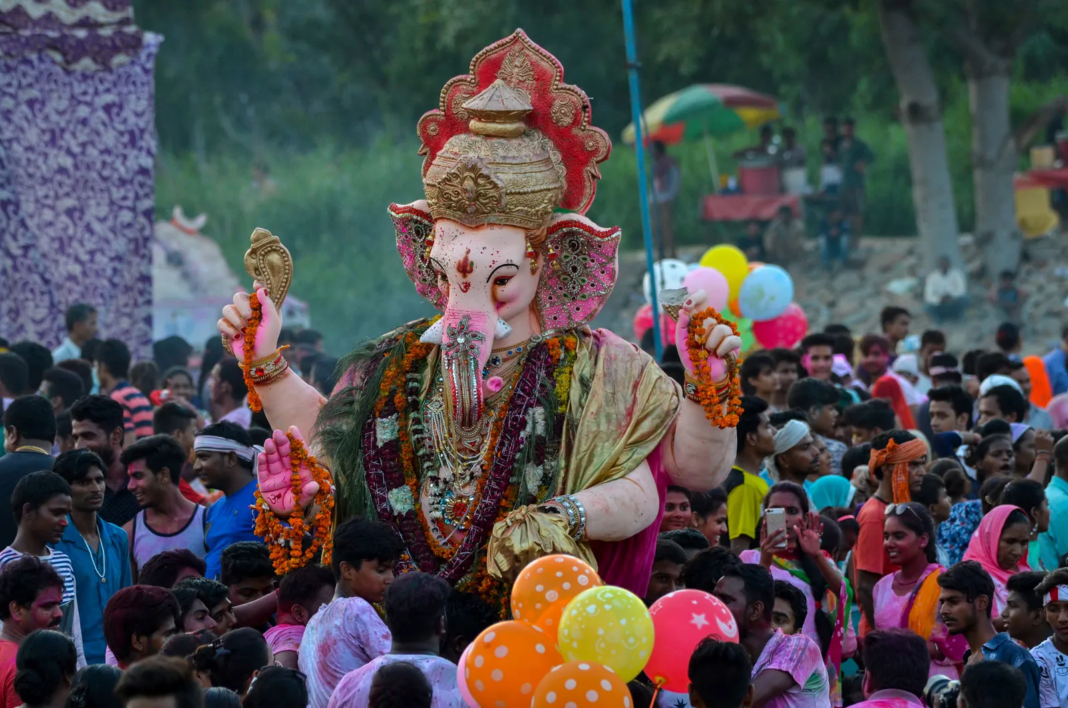As International Yoga Day (IYD) approaches, millions around the globe will gather to celebrate this ancient practice. While yoga has become a worldwide phenomenon—often associated with physical postures, flexibility, and wellness —its origins and deeper purpose are rooted in the ancient yet ageless spiritual traditions of Hindu Dharma.
Understanding and honoring these roots is essential, not only for authenticity but also for preserving the transformative power of yoga in our modern world.
The Hindu Origins and Evolution of Yoga
Yoga’s history stretches back thousands of years, emerging from ancient Bharat, that is India. Yoga was and is a spiritual discipline designed to cultivate self-discipline, self-knowledge, and ultimately, union with the Divine (known as moksha). Early references to yogic practices can be found in the Patanjali Yoga Sutras, Gheranda Samitha, Hatha Yoga Pradipika, the Upanishads, and the Bhagavad Gita—texts central to Hindu Dharma.
Over the centuries, yoga evolved into a comprehensive system encompassing:
- Asana: Movements/poses to steady, relax and strengthen the body, to prepare the body for enhanced pranayama.
- Pranayama: Deep/Long Breathing with awareness to calm the emotional mind.
- Ethical guidelines (Yamas and Niyamas): Fostering moral integrity, compassion, and self-restraint. This is yoga “off the mat.” Yoga practitioners become aware of which habits and actions are positively life affirming for themselves and those around them. For example, qualities of honesty and compassion.
- Meditation (Dhyana): Deepening self-awareness and connection with the Divine.
These elements remain integral to Hindu Dharmic philosophy and practice today. Yoga, in its truest sense, is a holistic path that unites body, breath, mind, focus and a sense of joy —a journey toward self-realization.
The Importance of International Yoga Day
International Yoga Day, observed annually on June 21st, offers a unique opportunity to reconnect with yoga’s authentic heritage. Established by the United Nations in 2014 at India’s behest, IYD aims to raise awareness of yoga’s benefits for physical, mental, and spiritual well-being. Well beyond global participation, it is a call to honor yoga’s deep spiritual legacy and its enduring relevance in the modern world.
Reclaiming Authentic Yoga
In today’s fast-paced society, yoga is often reduced to a fitness routine or commercialised as a lifestyle accessory. This superficial approach dilutes yoga’s essence and disconnects it from its spiritual roots. Such a practice is mere movement without meaning and has limited benefit.
Reclaiming true yoga requires:
- A Return to Tradition: Emphasizing spiritual growth, ethical living, and self-transformation over mere physical prowess.
- Honoring the Philosophy: Studying the foundational texts and teachings of Hindu Dharma to understand yoga’s deeper purpose.
- Fostering Genuine Relationships: Valuing the sacred teacher-student (guru-shishya) tradition, which ensures the transmission of authentic knowledge and guidance.
- Integrating Yoga into Daily Life: Practicing mindfulness, compassion, and self-discipline in every aspect of life—not just on the mat.
Why This Matters
Yoga is not just a set of exercises—it is a living tradition that offers a path to holistic well-being, inner peace, and spiritual liberation. Peace in our immediate family, community, nation and world will remain elusive if we do not cultivate inner peace ourselves.
By honoring its Hindu origins, we preserve the wisdom that has guided seekers for millennia. International Yoga Day is more than a celebration; it is an invitation to rediscover yoga’s true purpose and to integrate its timeless teachings into our lives – in a deep and practical sense. Modern education is increasingly even less effective for job readiness. It largely does not enable people to manage their time, energy, health, sense of calm, relationships and mental health. The ageles principles and practice of yoga are as relevant today as when they were formulated.
As we mark IYD, let us remember and respect the ancient lineage of Hindu Dharma from which yoga springs. In doing so, we not only deepen our own practice but also contribute to the preservation and flourishing of this sacred tradition for generations to come.




